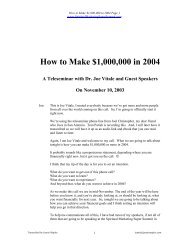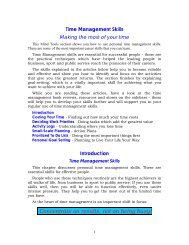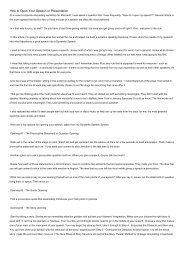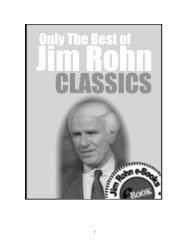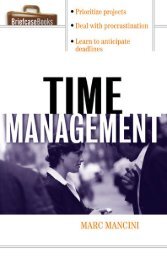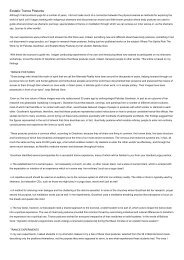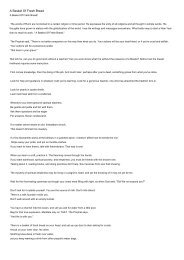Executive Coaching - A Guide For The HR Professional.pdf
Executive Coaching - A Guide For The HR Professional.pdf
Executive Coaching - A Guide For The HR Professional.pdf
You also want an ePaper? Increase the reach of your titles
YUMPU automatically turns print PDFs into web optimized ePapers that Google loves.
46 EXECUTIVE COACHING<br />
............................<br />
A reasonable approach, therefore, is to set an initial goal and<br />
expect to confirm or revise it as time goes by.<br />
Goal setting is central to the process. Well-defined goals allow<br />
you to work together, to assess progress and success, to choose appropriate<br />
methods and relevant data, and so forth. Good coaching is<br />
results-oriented and doesn’t wander off into unimportant tangents.<br />
It is important for the coach to understand the business challenges<br />
facing both the client and the organization.<br />
<strong>The</strong> goal for many coaching engagements is expressed in behavioral<br />
terms. <strong>For</strong> example, the client will do more or less of something,<br />
or learn to do something, or stop doing something. Some<br />
typical goals in executive coaching address client improvement in<br />
leadership competencies, specific interpersonal and social competencies,<br />
and the ability to manage his/her career issues. Other goals<br />
may explicitly and implicitly involve increasing the effectiveness of<br />
the organization and team.<br />
When possible, it will be useful to define the coaching goal in<br />
“business” terms—connecting it to operating plans or financial measures.<br />
This is often not possible, however desirable it might be. It is<br />
generally sufficient for the goal to be agreed on by the four interested<br />
parties—client, coach, <strong>HR</strong>, and boss. Both the client’s needs<br />
and the employer’s interests must be served. This agreement may be<br />
easy to reach or may be negotiated.<br />
3. Assessment<br />
Good coaching rests on a foundation of good data. It is important<br />
for the coach to quickly ascertain the performance level of the<br />
client in order to understand the magnitude of the gap between<br />
current performance and future desired performance. How is<br />
the client currently functioning? What has to improve or change<br />
for the client to maximize performance? <strong>The</strong> coach has to determine<br />
the overall pattern of strengths and challenge areas to help<br />
the client set goals for improvements in job performance. <strong>The</strong> coach<br />
and the client must be able to operate together with a common






